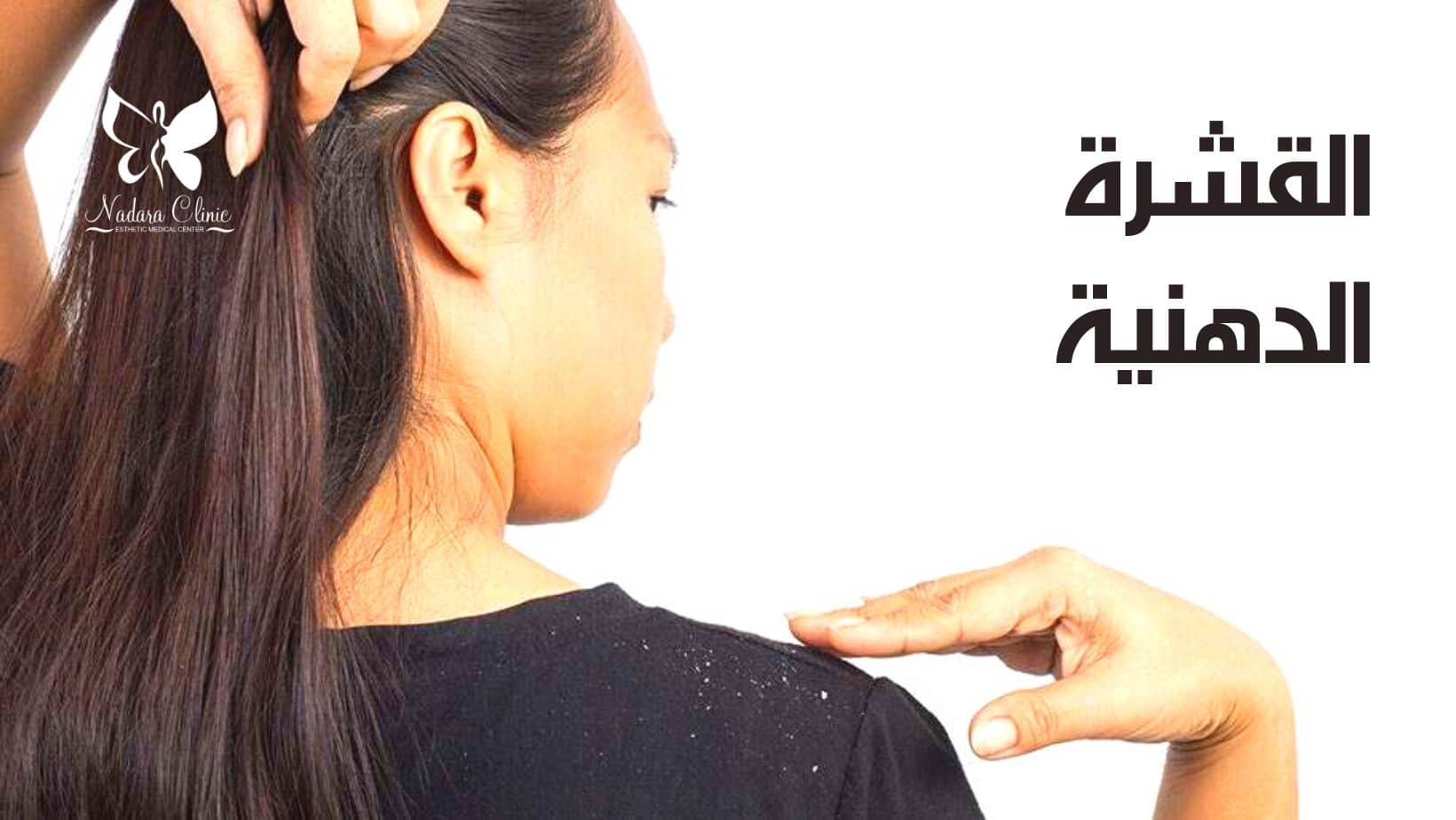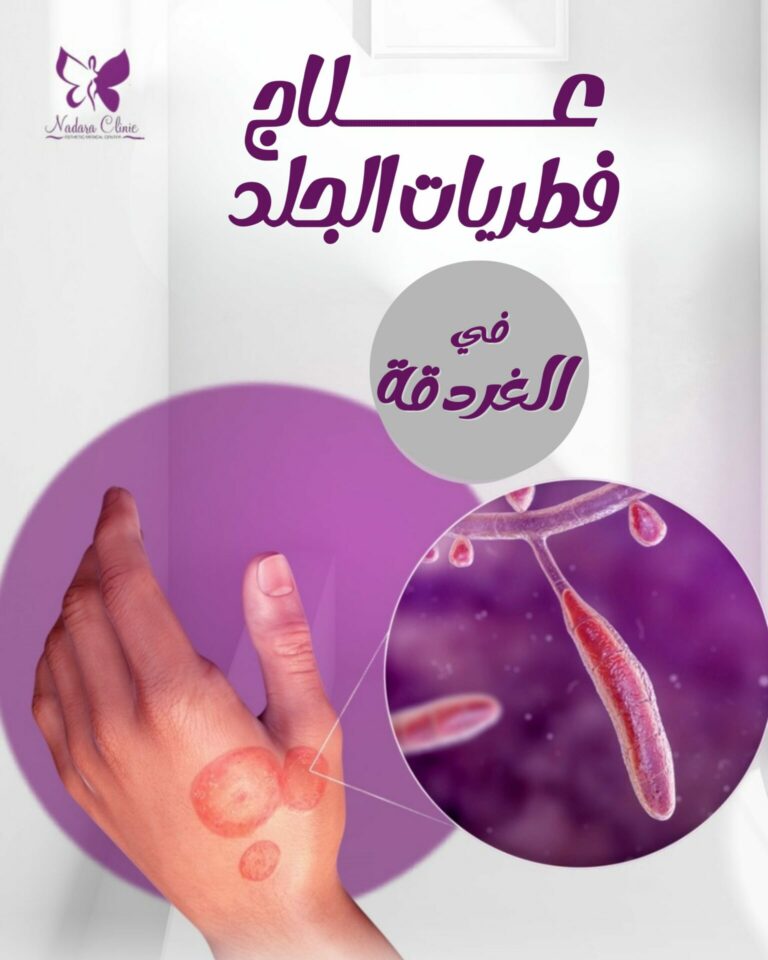Oily dandruff can be a nuisance to you, as it can be very embarrassing, and we understand that it can be difficult to deal with as well. Scratching your head in public, especially when you have dandruff, is not a good posture.
It may also force you to be barred from wearing any black item of clothing in your wardrobe; To make the crust more visible, what are the places of its appearance, and what are its causes and methods of treatment? This is what we will learn about in the freshness center for dermatology, laser and beauty in Hurghada.
Places of the body where the oily crust appears
There are some places on the body where oily dandruff may appear in abundance, and the most famous of these places is the scalp. Oily crust may also appear on the face, especially on the sides of the nose, and it may appear on the skin in other places as a result of inflammation or infection, but it is more visible in the scalp.
Everyone's scalp can get a little oily at times. But a little oil is okay, as the oil helps protect and support healthy hair. However, you can feel that an abnormally oily scalp has a problem if it makes your hair look greasy, or dirty all the time. You can also sometimes have an oily scalp along with some other symptoms of a skin disorder.
Causes of oily dandruff
Here are some of the common triggers for an oily scalp:
- seborrheic dermatitis;
Seborrheic dermatitis is a condition that irritates and inflames the skin. Pink, scaly areas of skin develop in areas with a lot of sebaceous glands, including the scalp. It can be caused by an allergic reaction, or be a symptom of an autoimmune condition. It's not a serious condition, and home remedies can often treat or manage it.
- skin diseases.
Skin conditions, such as eczema and psoriasis, can cause red, greasy, scaly patches to appear on your scalp. Both conditions are disorders associated with compromised immunity.
- Acne on the forehead.
Forehead acne develops when oily substances and skin cells get stuck inside the pores. It can also lead to a buildup of acne bacteria and cause acne bumps, and excessive oil production is often the cause of acne breakouts.
- genetic cause.
Genes may contribute to how much oil your glands produce and how thick your hair is.
You may be interested in: Say goodbye to sagging eyelids"
oily dandruff treatment
There are different ways to combat oily dandruff at Nudra Dermatology, Laser and Cosmetology Center in Hurghada. The active substances piroctone olamine and zinc pyrithione are highly effective against Malassezia yeast. Salicylic acid has an anti-inflammatory effect on the scalp and relieves scales of dead skin, and fumaric acid has a lasting effect on stubborn dandruff.
It is always important to choose the right anti-dandruff shampoo. That's why choose a shampoo that meets the specific needs of your scalp. Anti-dandruff degreasing shampoo is suitable for the prevention of oily dandruff.
You may be interested in: Nefertiti technique for perfect chin and neck"
Home remedies for oily dandruff
There are many things you can do at home, or buy at the pharmacy; To contribute to solving an oily scalp problem. Keep in mind that evidence for these home remedies is experimental, and results may vary. However, these suggestions do not replace traditional treatments.
- fish oil.
Studies show that fish oil may be useful in managing the appearance of dandruff. It is usually sold as an oral supplement. Many people also use fish oil for its potential benefits to the immune system and heart.
- Aloe vera.
Aloe vera is another natural remedy for dandruff that is backed by ancient research, and its use lies in its ability to control inflammation.
- Probiotics.
Probiotics are thought to be a good route; To reduce inflammation throughout the body, which can help control dandruff. There isn't a lot of evidence that probiotics are particularly effective for oily scalps. But there are some reliable sources, and it's worth talking to your doctor about whether it might help you.
- Tea tree oil.
Tea tree oil is an antiseptic that can help control the buildup of bacteria and fungi, as these buildups can lead to acne breakouts, or the development of certain scalp skin conditions. Dilute tea tree oil with a carrier oil, such as coconut oil or olive oil, and apply a few drops to the affected area.
- Apple cider vinegar.
Apple cider vinegar is a beloved novel remedy, but it routinely lacks sufficient evidence to support skin disorders. Apple cider vinegar is an effective anti-inflammatory that helps reduce the pH of the hair. Both of these capabilities may reduce oil production and stop skin irritation.
However, apple cider vinegar may irritate the skin if you have eczema. That's why if you decide to try apple cider vinegar, put a few drops of it on your scalp after washing your hair, leave it for a few minutes and then rinse it well.
- baking soda.
All you need is 1 tablespoon of baking soda for this fix. It is an easy and effective treatment, and it does not take any time. You can rinse your hair with lukewarm water, then gently massage it in circular motions with baking soda, wait for 1-2 minutes and then rinse it with lukewarm water again. Repeat this process two to three times every week.
Other home remedies
- henna.
This ingredient is mostly used during the wedding season. It can also prove its ability to treat oily dandruff, in addition to helping to soften, rejuvenate and restore your hair, by adding two tablespoons of lemon juice to henna, and leave this paste overnight.
Apply this mixture to your scalp in the morning and leave it for 2-3 hours, preferably rinsing your hair with an anti-dandruff shampoo. You can repeat this process about twice a month.
- Fenugreek seeds.
Fenugreek seeds have certain properties that help fight the problem of oily dandruff by soaking the fenugreek seeds in water overnight, then filtering the water and mashing the fenugreek seeds until it turns into a paste, and let it soak for half an hour. Apply the paste on your scalp and leave it for half an hour, then rinse it with shampoo.
- the Garlic.
This is probably the last ingredient that might come to your mind when you think of fighting dandruff. But garlic can certainly help in solving most dandruff problems, as it has anti-fungal properties that are useful in fighting dandruff.
Start by crushing 2-3 raw garlic cloves and adding 2 tablespoons of water to it, then add a little over 1 tablespoon of raw honey to this mixture. Apply this mixture on your scalp and leave it for some time, then rinse it out with shampoo.
You may be interested in: HIFU Vaginal Tightening"
How to treat dandruff with a healthy diet
A change in diet can have a significant impact on the health of your scalp. In the same way that you might experience greasy dandruff after greasy food, or bloating after drinking, your scalp can suffer from a malnutrition reaction. Therefore, it is advised to reduce unhealthy fats and sugar in your diet, such as fried foods and processed sugar.
that seborrheic dermatitis It contains a large fungal component. Reducing the chances of fungal infection may happen by eliminating foods that are high in glucose from your system, and it is said that avoiding these types of bad eating habits will help reduce inflammation.
It's also best to increase your intake of healthy fats, as eating healthy fats in the form of omega 3-6-9 can help reduce inflammatory effects and soothe itching and burning. Foods that are high in healthy fats and omega-3s may include: fish, nuts, and vegetable oils.
You may be interested in: Tinea versicolor"
Oily dandruff can be an annoying condition that causes embarrassment and low self-esteem, and there are many ways you can deal with this problem to make sure that dandruff goes away, for example, shampooing your hair frequently can erase dandruff.






